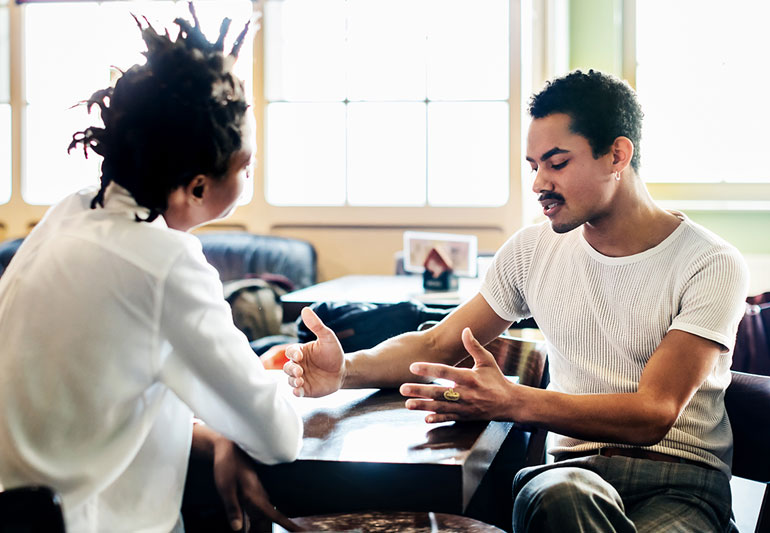Many people equate creativity with knowledge but nothing could be further from the truth.
According to creativity guru Roger von Oech, “The real key to being creative lies in what you do with your knowledge.”
Nevertheless, our formal schooling, along with certain societal myths, have put a premium on how much “stuff” we should be cramming into our heads (commonly measured by standardized tests).
Actually, creativity involves taking the knowledge you already have (either through public, private, or personal education) and manipulating it in new and unique ways.
This presupposes that you have a body of knowledge to work with. Psychologists often refer to this as the “threshold hypothesis,” an assumption that a certain level of IQ is a precondition for creative expression.
What the Research Says
One interesting study examined the relationship between intelligence and creative potential in a sample of about three hundred individuals.
What the researchers discovered was that an IQ score of around 100 was the necessary threshold for creative potential. To put that in more concrete terms, if you are reading and understanding this blog then, by definition, you have the necessary baseline for creative expression.
The study also revealed that even lower levels of IQ (around 85 points) often served as the intellectual “checkpoint” for quantitative measures of creative potential. Most revealing was this statement from the investigators, “We obtained evidence that once the intelligence threshold is met, personality factors become more predictive for creativity.”
Creativity expert Tanner Christensen further solidifies a connection between intelligence and creativity. He states, “Intelligence matters, [since] it demonstrates your ability to gather knowledge and effectively use it.
Creativity [on the other hand] is the ability to go beyond the intelligence frame and capitalize on seemingly random connections of concepts. Expert creatives don’t need to be more intelligent than the average person.”
Additional research has acknowledged that knowledge is only a foundation, a starting point. Using that knowledge in dynamic ways is what creativity is all about. Highly creative people don’t just sit on their knowledge (or rest on their laurels), they actively play with their knowledge.
They religiously generate lots of new ideas: practical ideas, childish ideas, wild ideas, off-the-wall ideas, crazy ideas, foolish ideas, quiet ideas, loud ideas, obtuse ideas, weird ideas, and strange ideas.
Creatives also look for random connections between often dissimilar concepts. For creatives, creativity is, quite simply, playing with their mentality (a critical part of the “growth mindset”).
In short, it’s not the level of intelligence that is important, it’s what we do with our innate intelligence that is.
Two Things You Can Do to Enhance Your Creativity
Steal It. Austin Kleon, author of Steal Like an Artist, makes a case for stealing ideas from others. He points out, quite emphatically, that there is no such thing as an original idea. All creative work builds on what has come before.
Something tagged “creative” is just the juxtaposition of two or more ideas that have never been combined before. He enthusiastically pens that, “Nothing is completely original… every new idea is just a mashup or a remix of one or more previous ideas.” The trick is to 1) collect as many different ideas as you possibly can, and 2) put them together in crazy, random, nonsensical, silly, ludicrous, cockeyed, harebrained, and cockamamie arrangements to create your own idea.
In short, the more ideas you collect from various sources, the more combinations you’ll be able to make. The trick is not to look for the best ideas (that prejudgment will stifle your creativity), but to look for all kinds of ideas from a wide variety of sources and resources. Creativity results when you put two or three of those ideas together in a unique and distinctive combination.
Doubt What You Know
Author and artist Rod Judkins, in his book The Art of Creative Thinking, makes a compelling statement: “Doubt what you know.” He goes on to say that, “Everything that has been achieved over the last five hundred years is because of doubt.” It is his contention that we don’t make progress—creative progress—if we accept everything we were taught or everything we have ever learned.
He contends that while it’s important for us to go out and seek knowledge, we also need to feel comfortable in doubting some of that knowledge. Accepting things as they are, rather than as they could be, is one of the great depressors of creativity. Just because an “expert” said something is so, doesn’t necessarily mean that it is right or that it can’t be changed.
At one time “experts” said that humans would never be able to fly. At one time “experts” said that women would never be able to vote. At one time “experts” said that wireless communication was an impossibility.
Don’t always accept what the “experts” say is the truth.
Most important, take significant time to doubt what you know and to doubt yourself (again, the “growth mindset”). You may open a door to creative opportunities.















